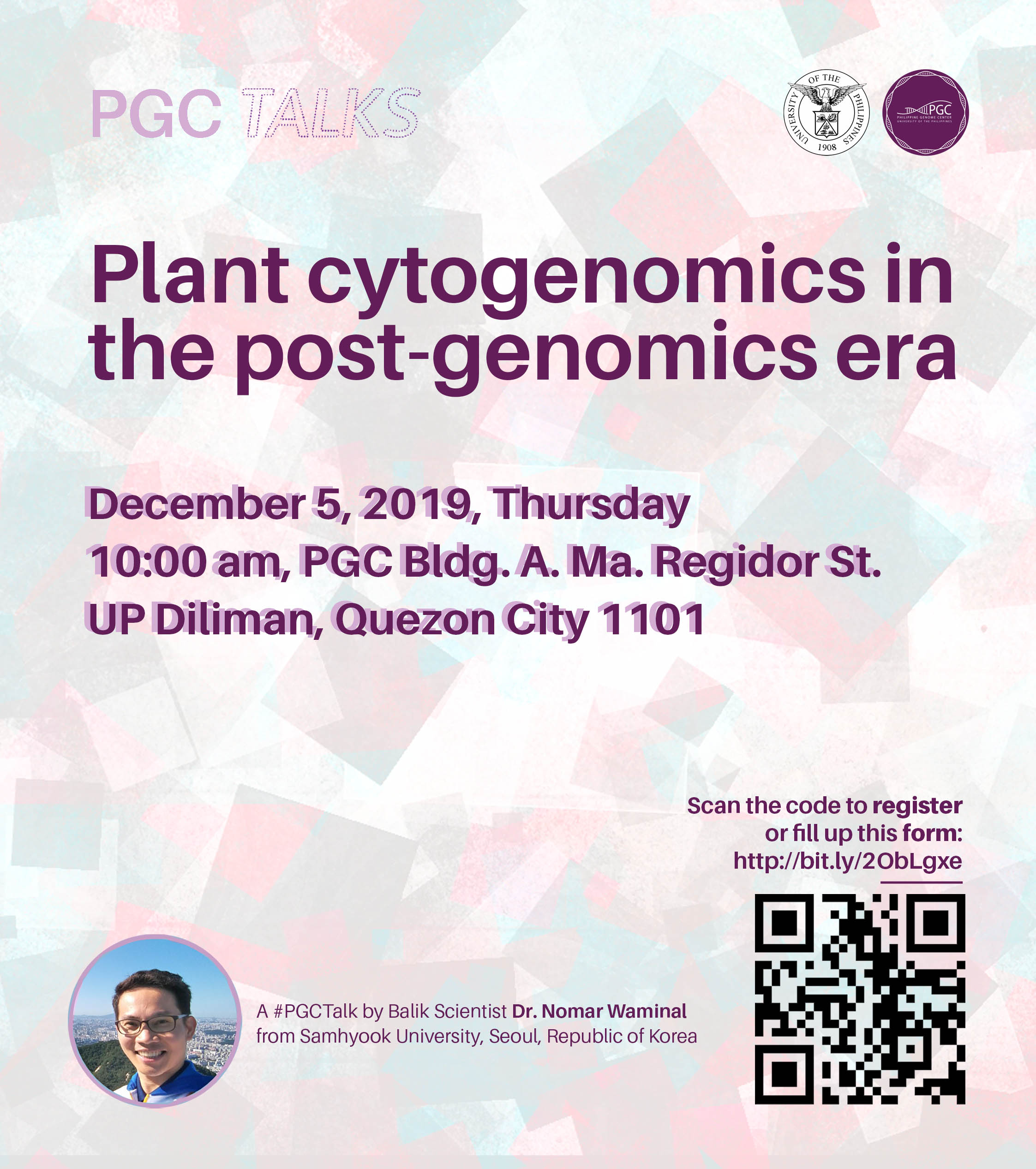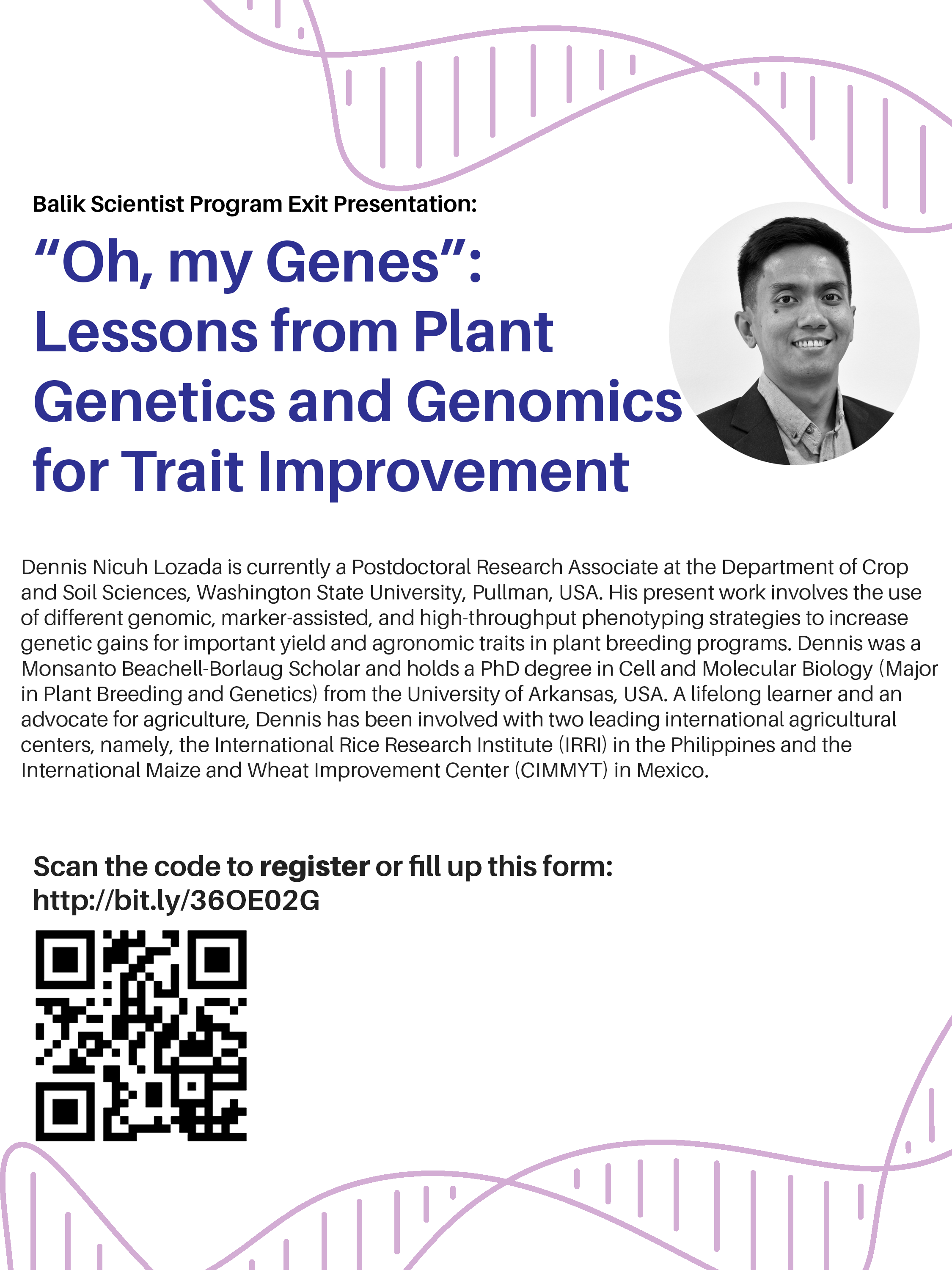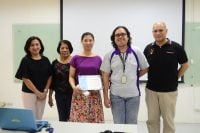The Philippine Genome Center of the UP System welcomes Felicitas L. Lacbawan, MD who used to teach at the Department of Human Biochemistry and Molecular Biology at the UP College of Medicine. Dr. Lacbawan, a former chief medical officer for genetics and genomics in the US rejoined the University to rise to the challenge of […]
#SalamatSaInyo
Thank you #SALAMATSAINYO Extending our appreciation and gratitude to the whole PGC skeletal force who have been working hard these past few weeks and are continuously doing so. In the same note, PGC sends its thanks to all the front liners out there: to our health workers, security guards, janitors, drivers, food chain employees and […]

Plant cytogenomics in the post-genomics era
The release of the first human reference genome in 2003 marked the beginning of the post-genomics era when genetics progressed beyond gene-centered analyses to a myriad of omics approaches. Genome sequencing technologies have advanced dramatically from Sanger, second/next-generation, to third-generation sequencing platforms. Also, genome assembly methods and tools have evolved contemporaneously, resulting in a dramatic drop in genome assembly cost. Consequently, more than 360 plant species’ genomes have been assembled ever since the first plant genome, Arabidopsis thaliana, was published in 2000.

“Oh, my Genes”: Lessons from Plant Genetics and Genomics for Trait Improvement
In recent years, genetics and genomics has played an important role in facilitating the genetic improvement of plants. Different tools have been developed to examine the structure, function, and properties of genes controlling complex traits. The genetic diversity of germplasm found in existing gene banks through different breeding populations such as core collections, nested association mapping panels, mutants, recombinant inbred lines, and multiparent advance generation intercross populations in germplasm banks served as sources of desirable alleles for plant breeding.
Read more about Dr. Raul V. Destura
Continued from Program on Health… After his training as Fogarty Fellow at the Center for Global Health, University of Virginia School of Medicine (Dr. Richard Guerrant’s Lab), he returned to his home country to share his knowledge and skills gained from the program for the control of infectious diseases relevant to the Philippines. Despite advancement […]

PGC hosts Balik Scientist, Dr. Cheryl P. Andam
Dr. Cheryl P. Andam is an Assistant Professor on Microbial Ecology at the Department of Molecular, Cellular and Biomedical Sciences, University of New Hampshire, USA was in the country from July 10 to August 8, 2017 as a Balik Scientist Program awardee hosted by the Philippine Genome Center.

